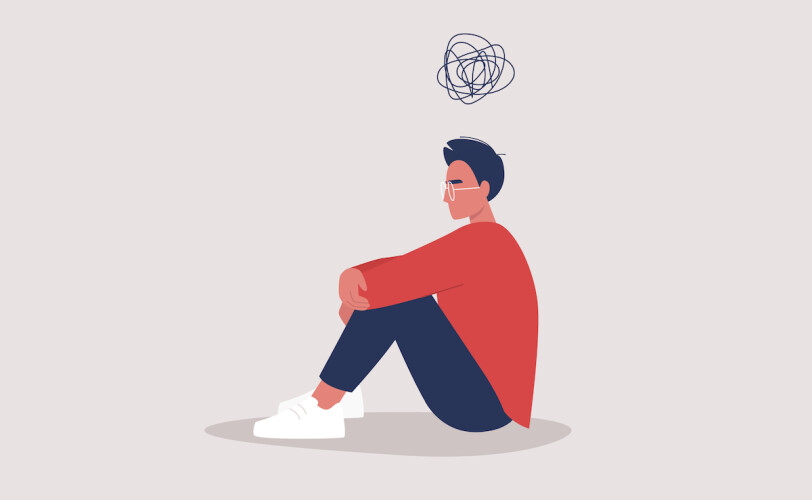Health anxiety: Does stress play a part?
Many people, especially since Covid, have developed health anxiety more than usual, with the symptoms of stress not always recognised as being physiological – mind, emotional and physical symptoms.

Stress and health anxiety
It can be reassuring initially to know that stress is a normal part of life and can be positive – to drive and motivate you – but it becomes negative when 'you cannot meet the demands placed on you' and it then becomes uncomfortable and even frightening when you don’t know what is physically happening to you. Hence, the health anxiety of what could be going wrong, which is wrong with you healthwise, and GP and hospital tests to check this out. You may have reassurance from GPs that nothing is wrong, yet symptoms of breathing, the stomach and heart rate keep happening – not to mention the exhaustion…
As a stress reaction is a function of the unconscious mind that is always on call, always alert for danger and problems and finding solutions, this 'happens to you' rather than a choice or decision. And today, this isn’t familiar to us. We are used to autonomy, making choices, and having options. Yet, your survival instinct can’t wait for you to make the 'right decision' in the face of immediate and imminent danger - or even the threat of it!
Your mind takes over, creating the reaction naturally in less than a second to flood your body and prepare you to run or fight – the instinctive ‘flight or flight response’ described by Seyle in the 30s, that you may have heard of but not experienced or realised before. It has been our survival mechanism since cavemen days before language, ideas, perceptions, relationships and even tribes. All animals and some plants have the same or similar reactions to save themselves.
Normal, healthy and necessary, this reaction is powerful and takes over everything – total focus on the problem or danger (always a sabre tooth tiger ready to eat you!), agitation to 'do something' (i.e. run, hide, fight, withdraw) and short breath, closed down digestion and heart rate increase. And muscle tension too, strength, purpose – but not always direction.
It makes you feel uncomfortable enough that you will change something and manage your stressors, change your situation or circumstances, get help and advice – take action in the moment and overall to improve your options going forward.
How counselling can help
Counselling helps you realise this, look at your situation, identify your options and then you can choose to change or stay, move or make small tweaks that make huge differences, perhaps – like walking or exercising in the moment to reduce the fight-flight response and calm down, to think straight and make informed choices.
It’s no surprise then that many people have developed an instinctive fear of something happening that is life-threatening when you didn’t even know it existed or could exist, like Covid appeared.
It is best to check it out, of course, but also helps if your therapist helps you understand, tips for managing it and offers reassurance that it is normal and common, and can be managed and reduced.
If you feel those symptoms – increased heart rate, breathing, stomach, digestion, tension, fidgeting, agitation – these are preparing you to move out of danger and back to your comfort and safety zone. Not just physical danger but also your personal needs, values, beliefs and expectations that if not met become a 'threat' to your wellbeing and so create this reaction.
Your GP might advise that the physical symptoms are stress-related if nothing else can be found. It’s worth considering this and that alone can sometimes reduce the intense and scary reaction that takes place when something doesn’t go your way or you are unsafe where you are.

Find a therapist dealing with Stress
All therapists are verified professionals


